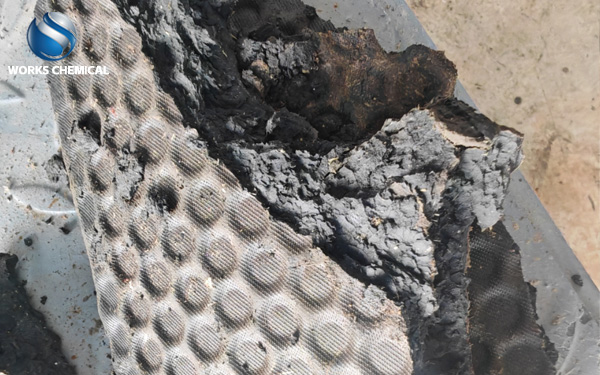
In order to reduce the moisture content of sludge, it is very important to choose the right dewatering agent. Here are some tips to help you choose an effective dehydrating agent:

First, consider the sludge properties
Organic matter content: For sludge with high organic matter content, inorganic agents such as iron oxide and aluminum sulfate can be selected for dehydration. These agents can chemically react with organic matter, change the colloidal structure of sludge and improve its dewatering performance.
Salt content: For sludge with high salt content, ferric chloride, sodium chloride and other salt agents may be more suitable. Salt agents can reduce the repulsion between sludge particles through ion exchange or charge neutralization, and promote its aggregation and settlement.
Two. Evaluation of drug effects
Dehydration rate: The selection of agents with high dehydration rate can more effectively reduce the sludge moisture content. By measuring the dehydration rate of different agents under the same conditions, the best agent can be selected.
Mud cake moisture content: mud cake moisture content is an important index to measure the effect of dehydration. Selecting an agent that produces a low water content mud cake can help reduce subsequent treatment costs and transportation costs.
Mixing degree of chemical agents and sewage: the more fully mixed the chemical agents and sewage, the more conducive to the water molecules in the sludge to penetrate the pores in the mud cake, so as to improve the dehydration effect. Therefore, it is necessary to ensure that the selected agent is easy to mix evenly with the sewage.
Three, consider economy and environmental protection
Pharmaceutical cost: According to the sludge treatment capacity and dehydration requirements, calculate the use of different pharmaceutical costs, choose cost-effective pharmaceutical.
Environmental impact: Choose environmentally friendly agents to avoid introducing new pollutants or increasing the difficulty of treatment. For example, some organic agents may contain ingredients that are harmful to the environment and should be used with caution.
Four, pay attention to the dosing method and amount of the drug
Dosing method: Continuous dosing can maintain certain efficacy and improve dehydration effect; Intermittent dosing may lead to reduced efficacy. The appropriate dosing method should be selected according to the actual situation.
Dosage: Too much or too little agent may lead to poor dehydration effect. The appropriate dosing amount should be determined according to laboratory test data or empirical values, and adjusted according to actual conditions in actual operation.
Five, refer to successful cases and expert advice
Successful cases: Review the successful cases of relevant industries, understand how other companies choose and use dehydration agents, and learn from the experience and lessons.
Expert advice: Consult experts or technicians in the field of sludge treatment to obtain professional advice and recommendations to guide the selection and use of agents.
In summary, reducing the moisture content of sludge requires comprehensive consideration of sludge properties, chemical effects, economic and environmental protection and other factors. The dewatering performance and treatment efficiency of sludge can be effectively improved by scientific and reasonable selection and use of dewatering agents.